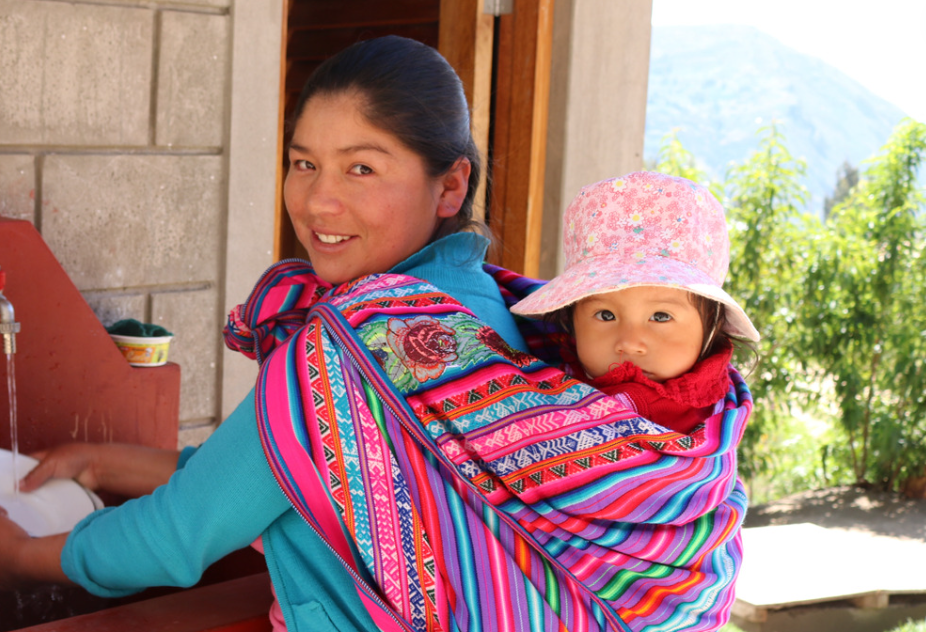Care is a fundamental job for sustaining human life. Throughout our life cycle, we will all have been or will be caring for others. Care activities refer to those that are related to the provision and maintenance of the physical, emotional and social well-being of people, non-human species and life in all its expressions, including domestic tasks, care for children, the elderly, sick or disabled people (Esquivel, 2013).
Care work has two elements in common: on the one hand, it falls disproportionately on women (restricting their economic, social and political autonomy) and, on the other, it traditionally has not been valued by society (which is why it is usually very poorly or not paid at all).
According to the International Labor Organization, more than 16 billion hours are dedicated to unpaid domestic and care work worldwide every day. Meanwhile, if we look towards Latin America and the Caribbean, we find that women dedicate more than twice as many hours as men to domestic and unpaid care responsibilities (38 versus 16 hours per week), a gap that expands in homes with young children (Egana-del Sol et al., 2022).
The care economy proposes that unpaid domestic and care work sustains countries’ economies. It is a job that generates value, so it must be made visible, recognized, and remunerated. According to ECLAC, unpaid work in the region represents between 15.9% and 27.6% of GDP, and 74% is performed by women.
Rural Care Work
In rural areas, the overload of unpaid care and domestic work is even more accentuated, compared to cities. This happens because in the rural context, the activities related to household, consumption and production are carried out in the same space. Gender roles and stereotypes continue to significantly influence the daily lives of people in many rural communities, where women or even girls are expected to take charge of these types of tasks.
Rural care work consists on all activities (either paid or unpaid), that are carried out to sustain daily life and preserve the territories of those who live in rural areas. Rural care work incorporates direct and indirect care activities in the agricultural, livestock, fishing and forestry chains, in contexts with little access and control of productive assets. The following are some rural care work activities:
I. Care of children and the elderly, shopping and preparing food for the family, cleaning and maintaining the home.
II. Feeding, breeding, harvesting, collecting and processing of animals for self-consumption (fish, sheep, cattle, goats, pigs, rabbits, and avian species) and/or care of the family or community garden.
III. Transmission of traditional knowledge related to sustainable agricultural practices.
IV. Activities associated with the care of bodies of water, forests and other ecosystems and traditional crops.
V. Activities to make up for the deficit in the provision of public goods and services, such as carrying water and collecting firewood.
Unpaid care work contributes to the rural economy, local production and food security. For example, the production and preparation of food contributes to guaranteeing access to fresh and nutritious food for rural families, while the care of family gardens contributes to the availability of food within the home. Additionally, care work supports the paid agricultural workforce, allowing these workers to focus on commercial productive activities that, in turn, generate economic income to sustain rural communities.
The 5 R’s of Rural Care
The care economy seeks to make visible and give value to this type of activities in society. To address gender inequality in unpaid care work, it is recommended to design policies aimed at:
- Recognizing: To make visible and value the activities carried out to sustain the lives of people and living beings, the production of food and the care of territories, whether remunerated or not, as an economic right.
- Redistributing: To distribute unpaid care tasks equally between men and women. It includes the role of the State, companies, communities and households in this distribution.
- Reducing: To reduce the workload and the times associated with these activities.
- Rewarding: To improve the conditions of current care jobs and create new decent, quality care jobs that incorporate comprehensive social protection, training, professionalization, etc.
- Representing: To be represented in public spaces, in decision-making, in the design of public policies, etc.
The Inter-American Development Bank has approved a technical cooperation to support the Ministry of Agriculture and Rural Development of Colombia in the design of a comprehensive rural development strategy with emphasis on gender perspective, which will strengthen gender and rural care policies.
The project includes training and raising awareness of what rural economy is in the communities, the unpaid care work, new masculinities, gender role workshops and security of land tenure for women. Inputs will also be identified and provided, which will allow for alleviating and redistributing the burdens and times allocated to unpaid work, such as conceptual tools, productive care inputs, household goods, and small care infrastructure.
Additionally, one of the main difficulties when designing public policies is that there is extensive literature available on care work in urban environments, but there is a lack of information in the rural context. Therefore, an instrument will be proposed to approximate the measurement of the time that women dedicate to this type of activities, and rural care guidelines will be generated that will guide the actions of all entities in the Colombian agricultural sector.
On International Women’s Day, let’s recognize and value the importance of rural care work for achieving food security and inclusive development in the region.
—
Did you like this content? Subscribe to our data base of Agriculture and Food Security to receive information about new publications and upcoming events.
—
Related content:
Infographics: Seeds for Food Security in Latin America and the Caribbean
Blog: COP28: Why Food Systems Must Be at the Center of the Climate Agenda
Blog: Protecting the Planet to Ensure Food Security


Leave a Reply